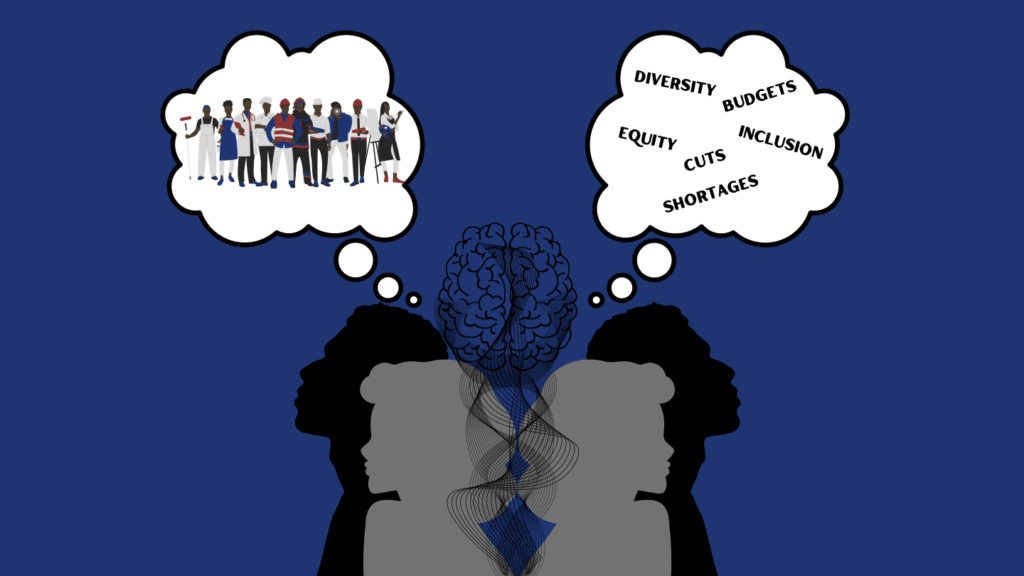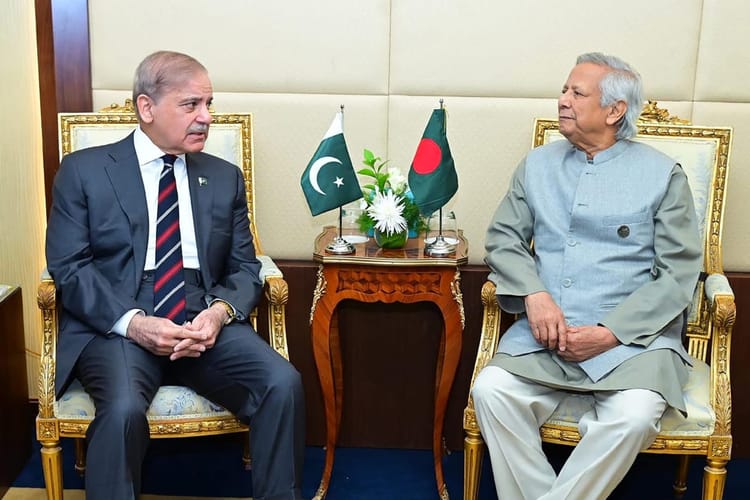DEI-nied: The Global Fallout of Trump’s Diversity Rollback

Donald Trump's recent executive orders targeting Diversity, Equity, and Inclusion (DEI) policies have sent shockwaves beyond the United States, influencing global corporate strategies, regulatory frameworks, and social movements. As his administration scales back affirmative action and workplace diversity initiatives, multinational corporations, foreign governments, and advocacy groups worldwide are grappling with the ramifications of America’s retreat from DEI principles. The ripple effect of these changes is already evident, from boardrooms in Europe to hiring practices in Asia and Africa.
Corporate Response: A Retreat from DEI Commitments
One of the most immediate consequences of Trump’s anti-DEI stance is the shift within multinational corporations that operate in the U.S. but have a global footprint. Many of these companies have spent the last decade prioritizing diversity initiatives, spurred by public demand, social justice movements, and studies linking diverse workforces to better financial performance.
"The uncertainty surrounding DEI policies in the U.S. has created a challenging environment for companies that operate internationally," said a senior executive at a major U.S. tech firm.
Companies such as Alphabet, McDonald’s, and Citigroup had previously committed substantial resources to fostering inclusive workplaces. However, with federal scrutiny now intensifying under Trump’s executive orders, several firms have begun quietly dismantling or rebranding their DEI programs to avoid legal and political repercussions. This shift has led to confusion and concern among global subsidiaries, where diversity policies remain highly valued and, in some cases, legally mandated.
European Concerns Over DEI Divergence
The European Union, where corporate diversity mandates are enshrined in law, has expressed alarm over these developments. The EU Commission, which has pushed for gender quotas on corporate boards and equal pay transparency, now faces pressure from American firms adjusting to the new regulatory landscape back home.
"If U.S. companies roll back DEI commitments, they could face stricter scrutiny or even penalties within the EU," warned a European policymaker.
Legal experts predict that the divergence between U.S. and European corporate policies could create friction, particularly for transatlantic companies that must navigate contrasting legal frameworks.

UK Businesses Caught in the Crossfire
In the United Kingdom, which has implemented its own workplace diversity reforms post-Brexit, business leaders worry about the potential domino effect of U.S. policy shifts. The Confederation of British Industry (CBI) has urged multinational firms not to abandon their diversity efforts despite political headwinds in America.
"Companies operating in the UK must continue to comply with local diversity standards, even if their parent companies retreat from such commitments in the U.S.," stated a UK regulatory official.
The situation has sparked debate among UK-based executives, some of whom fear that abandoning DEI could undermine progress on workplace inclusion and employee engagement.
DEI Funding Cuts Impact Global Aid Programs
Beyond the corporate world, Trump's DEI rollbacks are also influencing international diplomatic and development efforts. Under his administration’s new directives, federal agencies have been instructed to cut DEI-related funding in global aid programs, particularly those focused on gender equality, LGBTQ+ rights, and minority empowerment.
"The loss of U.S. funding puts many of our initiatives at risk," said a spokesperson for an international NGO operating in Africa.
Organizations working in Africa and Latin America have reported funding cuts that jeopardize programs aimed at closing gender gaps in education, supporting female entrepreneurs, and promoting workplace inclusion for marginalized communities.
International Political Shifts Following U.S. Rollbacks
The withdrawal of U.S. support for these programs has emboldened conservative governments in some countries to scale back their own DEI efforts. In Brazil, where right-wing politicians have long opposed gender and racial quotas in public sector jobs, Trump’s policies are being cited as justification for reviewing existing affirmative action laws.
Similarly, in India, where debates over caste-based reservations remain contentious, some political factions have pointed to the U.S. rollback on DEI as a reason to reconsider long-standing affirmative action policies.
Global Resistance Against Trump’s DEI Cuts
At the same time, the reaction to Trump’s DEI cuts has sparked backlash and resistance in many parts of the world. Advocacy groups in Europe and Canada have launched new initiatives to counteract the influence of American policy changes, reaffirming their commitment to workplace diversity and inclusion.
"We cannot allow one country’s policy shift to undermine decades of progress on equity and inclusion," stated a Canadian government official.
In Germany, business leaders and government officials have doubled down on efforts to integrate migrant workers into the labor force, emphasizing that inclusive policies are essential for long-term economic growth. In Canada, where DEI principles are deeply embedded in government and corporate policies, officials have criticized the U.S. for undermining global progress on equity and inclusion.
Asia’s Mixed Reaction to DEI Changes
In Asia, where diversity policies vary widely by country, the response has been mixed. In Japan and South Korea, where companies have traditionally struggled with gender diversity in leadership roles, some firms are concerned that the U.S. retreat from DEI could slow momentum for inclusive hiring practices.
"Many companies were beginning to implement DEI strategies, but now there’s hesitation," admitted a Japanese business consultant.
Conversely, in China, where government-driven diversity policies are often tied to economic and geopolitical strategies, officials have largely dismissed Trump’s anti-DEI stance as a domestic U.S. issue with limited impact on Chinese corporate governance.

The Future of Corporate Responsibility
Meanwhile, the rollback of DEI policies in the U.S. has fueled discussions about the future of corporate responsibility on a global scale. Investors and shareholders, particularly those focused on Environmental, Social, and Governance (ESG) criteria, are now reassessing the long-term viability of companies that scale back diversity efforts.
"Companies that abandon DEI initiatives risk reputational damage and decreased competitiveness in an increasingly diverse and globalized marketplace," warned an institutional investor.
Labor unions and employee advocacy groups are also stepping up efforts to hold companies accountable. In France, unions representing multinational corporate employees have called for new measures to ensure that American firms maintain diversity commitments in their European branches. Similarly, in South Africa, where affirmative action policies are legally mandated, government officials have reiterated that foreign companies must comply with local diversity laws, regardless of policy shifts in the U.S.
Impact on Entertainment and Media Industries
The entertainment and media industries have also been impacted by Trump’s anti-DEI stance. Hollywood, which has faced mounting pressure to increase representation of marginalized communities, is now caught in a crossfire between political and financial interests.
"We are reassessing initiatives that could face legal challenges under the new administration’s directives," admitted a spokesperson for a major Hollywood studio.
The international film industry, particularly in the UK and Canada, is closely watching these developments, as U.S. policy changes could influence global hiring practices and content creation.
A Lasting Global Impact
Ultimately, Trump’s rollback of DEI policies has set off a complex chain reaction across multiple sectors worldwide. While some governments and businesses see the shift as an opportunity to reevaluate affirmative action and workplace diversity initiatives, others view it as a dangerous precedent that threatens hard-fought progress on inclusion and equity.
"The long-term implications of America’s policy shift remain uncertain, but one thing is clear: the impact is being felt far beyond U.S. borders," said an international policy analyst.
Fatima Hassan is a freelance journalist and the co-founder & Multimedia Editor of Echoes Media, dedicated to crafting impactful stories that resonate with diverse audiences. A journalism graduate of Northwestern University, Fatima combines analytical rigor with creative storytelling to explore complex issues and amplify unheard voices.






Member discussion